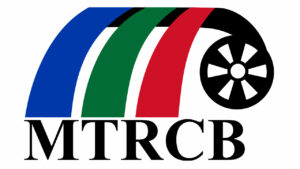Business groups welcome amended CREATE rules

INDUSTRY GROUPS welcomed the amendments to the implementing rules and regulations (IRR) of the Corporate Recovery and Tax Incentives for Enterprises (CREATE) law which clarified the eligibility of exporters seeking to avail of value-added tax (VAT) zero-rating.
Philippine Chamber of Commerce and Industry President George T. Barcelon said they are “happy” with the new rules as it addressed the issues raised by registered business enterprises.
“[Before,] when they buy supply or materials from a local source, they’re still charged with VAT. With the amendments, it’s now clear. If you are an export-oriented company, or you’re in the Philippine Economic Zone Authority (PEZA) zone or special zone, you are exempted from those taxes,” Mr. Barcelon said in a phone interview.
The departments of Finance (DoF) and Trade and Industry on Friday approved the amendment of Rule 18 Section 5 of the IRR, in response to a Malacañang directive to review VAT-related issues concerning both domestic market enterprises (DMEs) and registered export enterprises (REEs).
Transitory registered DMEs within an economic or a freeport zone availing of the 5% gross income tax regime may now register as VAT taxpayers.
“This will enable VAT-registered DMEs covered by the transitory provisions of CREATE to either charge output VAT to domestic customers or receive a refund from the Bureau of Internal Revenue (BIR) for the input VAT directly attributable to their zero-rated sales,” DoF said in a statement on Friday.
On the other hand, transitory REEs, whose income tax-based incentives have expired, will continue to enjoy VAT zero-rating on their local purchases until the electronic sales reporting system is fully operational or until the expiration of the 10-year transitory period, whichever comes earlier.
Mr. Barcelon said the amendment will indirectly help local suppliers, as exporters previously warned that the failure to resolve the VAT zero-rating issue may force them to consider imports instead of local purchases, and even move their operations overseas.
“It would just make things easier to be honest. At that time, when it was not yet (approved), there’s unnecessary bureaucracy. So, we’re glad that (the government approved it) and we hope that the amendments will stay,” Mr. Barcelon said.
With the new rule, Confederation of Wearables Exporters of the Philippines (CONWEP) Executive Director Maritess J. Agoncillo said majority of its members can now enjoy the VAT zero-rating on local purchases as they are manufacturing for the export market.
“This will definitely bring back investor confidence to our industry since the amendment now recognizes the cross-border doctrine principle on taxation,” she said.
The cross-border doctrine is a legal principle that mandates that no VAT be imposed on goods destined for consumption outside the territorial border of the taxing authority, including sales to export processing zones.
However, Ms. Agoncillo said they are still concerned with the application process for the VAT refunds of their member firms.
“Especially those that are Board of Investments-registered facilities doing 100% exports, I hope they may be provided proper and efficient attention as they process for their corresponding VAT refunds,” she said.
Rizal Commercial Banking Corp. Chief Economist Michael L. Ricafort said the amended rules will help lift investor confidence in the country.
“This is consistent in giving certainty on investment incentives in the country under the CREATE law and removing other remaining uncertainties, especially from the point of view of foreign investors and exporters that are enticed with incentives at the various ecozones, in view of competition with other ASEAN countries,” Mr. Ricafort said.
Exporters had previously called on the government to address the “conflicting provisions” in the VAT zero-rating guidelines stemming from the CREATE Act, which was signed in 2021.
Under the CREATE Act, business enterprises are required to prove that the local purchases of goods and services are directly and exclusively used in their registered activities in order to avail themselves of the VAT zero-rating.
Prior to the CREATE Act, local purchases by enterprises registered with and located in economic and freeport zones were entitled to VAT zero-rating. — Keisha B. Ta-asan




